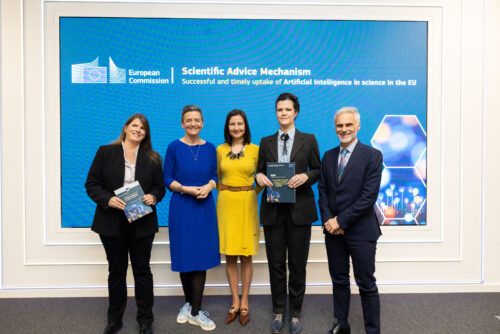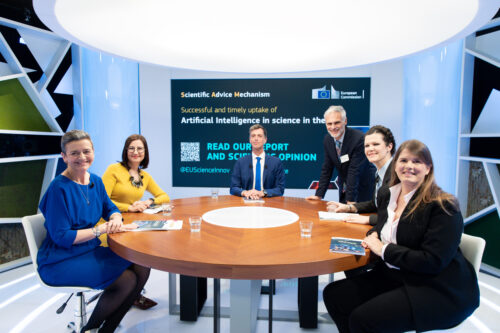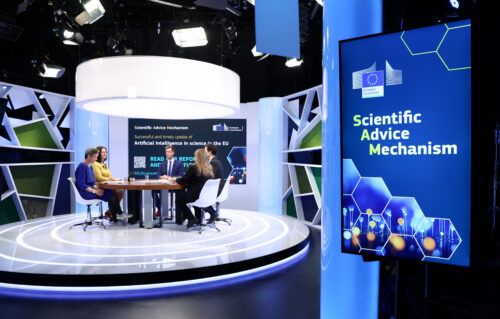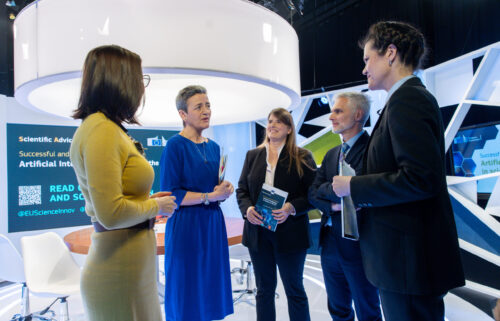We need A new European institute for AI in science, academies advise European Commission
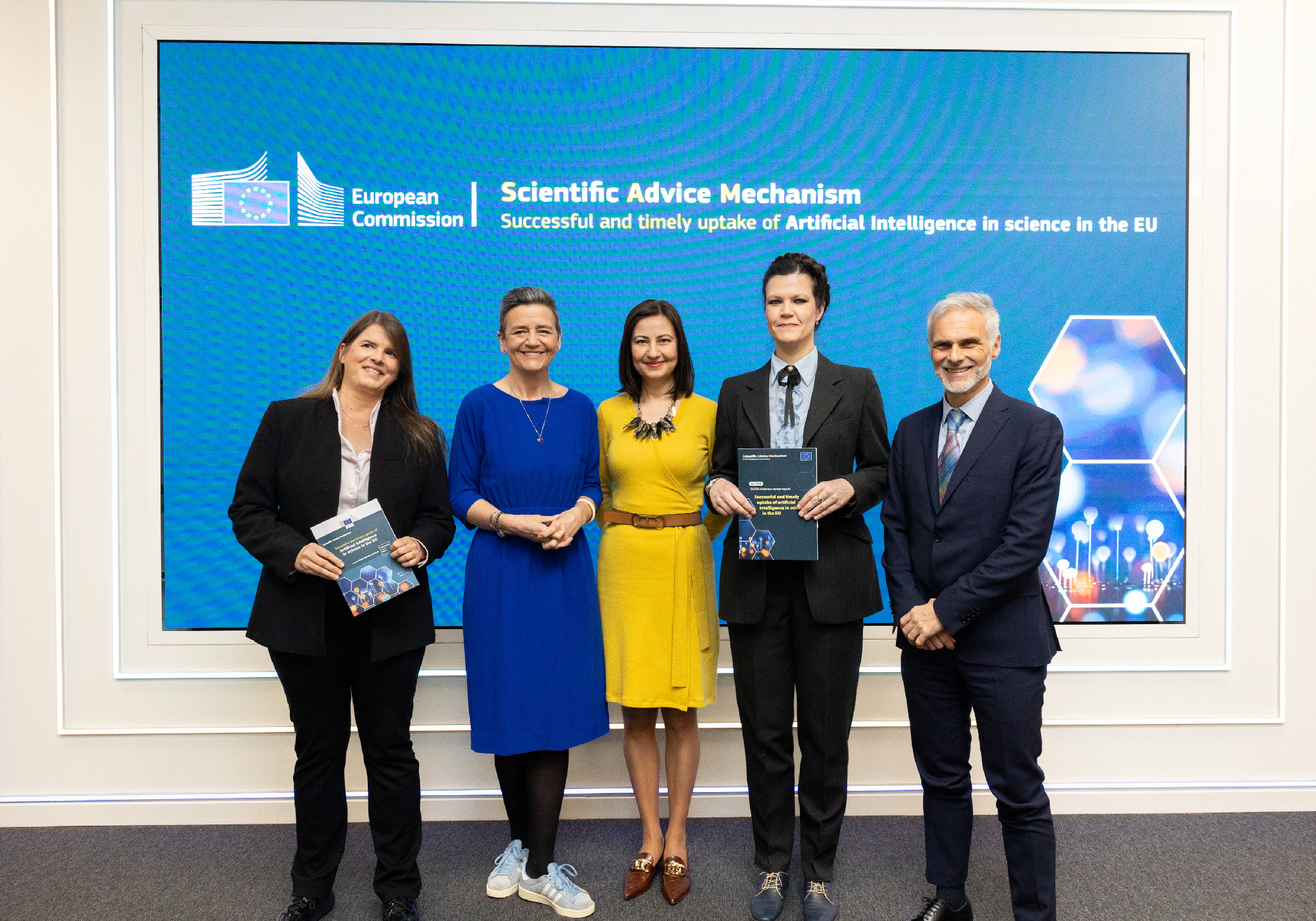
Brussels, 15 April 2024
A group of renowned scientists, nominated by academies through the European Commission’s Scientific Advice Mechanism, have advised Commissioners on the use of AI in science.
The advice comes in response to a request from Margrethe Vestager, Executive Vice-President for a Europe Fit for the Digital Age, to guide and support the overall European Commission’s strategy for AI in research and innovation. These recommendations were handed over to Commissioners Ivanova and EVP Vestager, today in Brussels.
The Scientific Advice Mechanism provides independent scientific evidence and policy recommendations to the European institutions. “By bringing together experts from various scientific backgrounds, we have crafted comprehensive scientific advice on artificial intelligence that informs top EU policymakers” – says Professor Stefan Constantinescu, The Chair of the SAPEA Board.
According to the advice, artificial intelligence has the potential to revolutionise scientific discovery, accelerate research progress, boost innovation and improve researchers’ productivity.
Professor Anna Fabijańska, the co-chair of the SAPEA working group that reviewed the scientific evidence to inform these recommendations, says we need to rebalance the situation and boost public research across all disciplines and member states.
“That means giving universities and research institutes across Europe fair access to state-of-the-art AI facilities.” – Professor Andrea Emilio Rizzoli, co-chair of the SAPEA working group added.
As part of the new advice, the Group of Chief Scientific Advisors to the European Commission recommends forming a new European institute for AI in science that would provide massive high-performing computational power, a sustainable cloud infrastructure, and AI training programmes for scientists.
Handover of the reports to Commissioner Ivanova and EVP Vestager
Click on the button to load the content from audiovisual.ec.europa.eu.
Alongside these services, a European AI in Science Council would provide dedicated funding for researchers in all disciplines to explore and adopt AI in their sciences. These would also ensure that AI in research aligns with EU core values.
AI-powered scientific research requires a vast amount of data. That data should be high quality, responsibly collected and well curated, with fair access for European researchers and innovators.
Finally, scientists highlighted that the technologies of the future must be driven by people and communities, not only by profit. The EU should promote research on the philosophical, legal, and ethical issues that arise when AI is used in science, and the impact of these issues on fundamental human rights, transparency and accountability.
Background
The Scientific Advice Mechanism provides independent scientific evidence and policy recommendations to the European institutions by request of the College of Commissioners. It includes the Science Advice for Policy by European Academies (SAPEA) consortium, which gathers expertise from more than 100 academies across Europe, and the Group of Chief Scientific Advisors (GCSA), who provide independent guidance informed by the evidence.
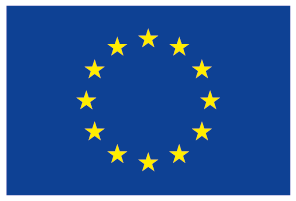
Within the Scientific Advice Mechanism, SAPEA is funded by the European Union. The activities of associated partners Academia Europaea and Cardiff University are funded by UKRI (grant number 10033786).
Further information
Policy advice at European level (acatech)
Living guidelines on the responsible use of generative AI in research
Mapping ERC frontier research artificial intelligence
Use and impact of artificial intelligence in the scientific process – Foresight


